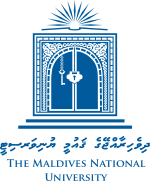A Preliminary Study of the Quality of Seawater at Rasfannu Beach of Male’ City
DOI:
https://doi.org/10.70592/mjet.2024.1.01.005Keywords:
seawater quality, Rasfannu Beach, physicochemical parameters, bacteriological parameters, recreational waterAbstract
The coastal waters of Malé, Maldives, suffer from pollution due to sewage and
untreated waste effluent discharge. Unlike other islands, Malé lacks natural beaches, leading to
the creation of two artificial beaches. These beaches are overcrowded, and concerns about water
quality persist due to poor water circulation and nearby sewage pipes. This study aims to assess
the water quality of Rasfannu, a recently created artificial beach. Water samples were collected
weekly over four weeks and analyzed for physicochemical parameters (pH, turbidity,
conductivity, nitrate, nitrite, nitrogen ammonia) and bacteriological parameters (E. coli, fecal
coliform, total coliform). The membrane filtration method was used for bacterial analysis, while
absorption spectroscopy was used for measuring nitrate, nitrite, and nitrogen ammonia. The pH
and conductivity were measured using the Mettler Toledo pH meter. The results were compared
with guidelines from the World Health Organization (WHO), United States Environmental
Protection Agency (USEPA), recreational water guidelines from Canada, California, and the
European Union (EU). The hypothesis was that the water at Rasfannu beach is contaminated and
unsafe for recreational purposes. However, the results indicated that all parameters fell within
acceptable ranges as per these guidelines, and the water quality index calculated following the
National Sanitation Foundation (NSF) rated the water quality as good. Thus, Rasfannu beach is
deemed safe for recreational use.
Downloads
Published
Issue
Section
License
Copyright (c) 2024 Maldives Journal of Engineering and Technology

This work is licensed under a Creative Commons Attribution 4.0 International License.







